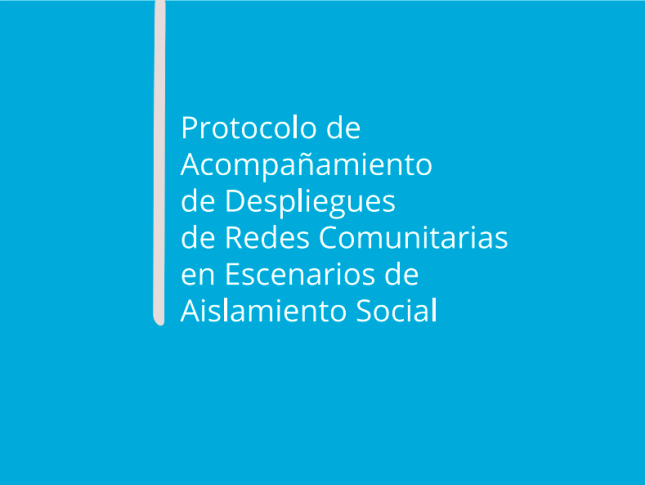
Since the start of the COVID-19 pandemic, people’s daily lives have been disrupted, limited and greatly digitised. In the face of this emerging situation, the inequality between those who have internet access in their homes and those who do not is even clearer.
In rural or precarious areas, connectivity is non-existent, deficient and/or costly. These areas have always suffered from the violation of their essential rights, neglect by the state and lack of appropriate proposals from private providers who do not consider it profitable to provide coverage in these areas.
For this reason, these communities are suffering from numerous deficiencies, the impossibility of exercising their rights to health, education, work, among others, and are facing excessive and exclusive expenses to face this new reality.
These characteristics open up a range of possibilities to develop digital communication tools that bring real solutions to achieve access to health and education systems, to sustain the social fabric, promote the local economy, strengthen support networks for gender violence, facilitate teleworking tools, guarantee access to information, and offer entertainment, among other things.
In the current scenario of social isolation, the network deployment work stages have been adapted through this specific protocol that guarantees the recommendations for social distancing and prevention of COVID-19. Communities from Latin America that decide to co-create their own bits of internet will have Community Network Starter Kits, training and loving and powerful remote support.
Access the protocol on the AlterMundi website or download it here.